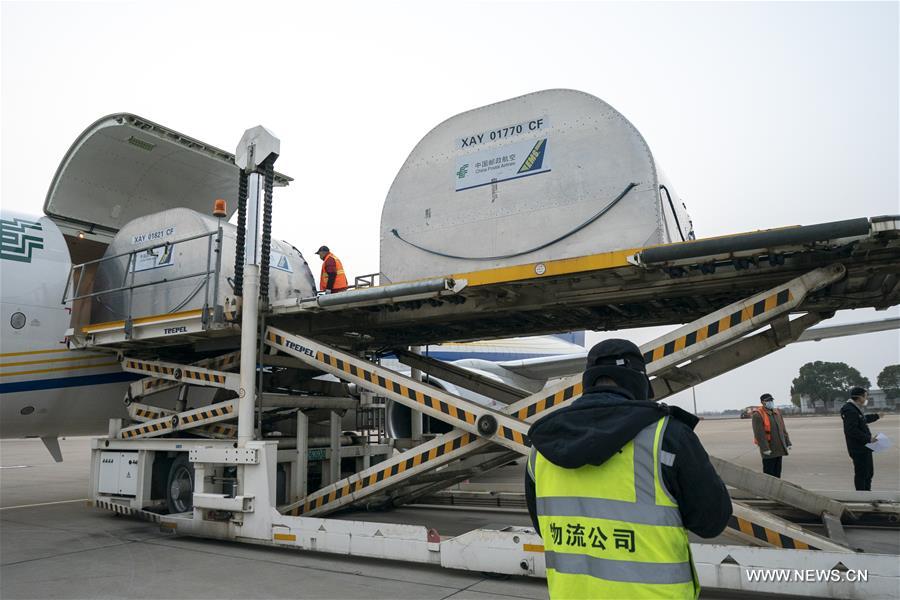China will take further steps to boost international airfreight capacity to stabilize supply chains, the State Council's executive meeting chaired by Premier Li Keqiang said on Tuesday.
"With the (COVID-19) pandemic rampaging across the world and air passenger services dwindling worldwide due to the outbreak, cargo volume carried by passenger planes has plummeted and shipping costs have risen significantly," Li said.
"In the course of the outbreak response, weak links in our air transport capacity have been exposed. We must facilitate both international and domestic air transport services and keep up our international airfreight capacity to avert potential shocks to supply chains and facilitate resumption of business operations," he said.
The meeting called for stronger international collaboration to keep international express delivery and other airfreight services up and running. Policy support will be provided to international cargo flights during the outbreak. Airfreight carriers will be provided support to expand their fleets by bringing in more cargo jets through lease or purchase.
The role of the market will be fully harnessed and all airfreight companies will receive equal support regardless of ownership type. The merger and reorganization of airfreight and logistics firms will be encouraged, and express delivery companies will be supported in expanding air services and overseas operations.
"We must plan ahead and harness the initiative of logistics firms in developing an international air transport network," Li said.
The meeting urged strengthening networks of air cargo hubs. Restrictions on time slots for cargo flights will be lifted at airports with strong cargo-handling capacity.
Where conditions permit, international hub airports in Beijing, Tianjin, Hebei province, the Yangtze River Delta, Guangdong province, Hong Kong, Macao, Chengdu, Sichuan province and Chongqing will provide 24/7 customs clearance services and improve efficiency in security checks and clearance processes.
"The manufacturing sector has been the first to resume operations, and experience has been gained in this process. The major challenge is clogged supply chains. To date, micro, small and medium-sized enterprises have yet to resume full-capacity production, and this has affected the entire industry chain. It is thus critical that all supportive policies for smaller firms be promptly and fully delivered," Li said.
The meeting also required harmonizing airfreight service standards, simplifying documentation requirements and promoting paperless handling procedures. Platforms for logistics information sharing will be developed to serve airlines, postal services and express delivery companies.
Post time: Mar-25-2020


